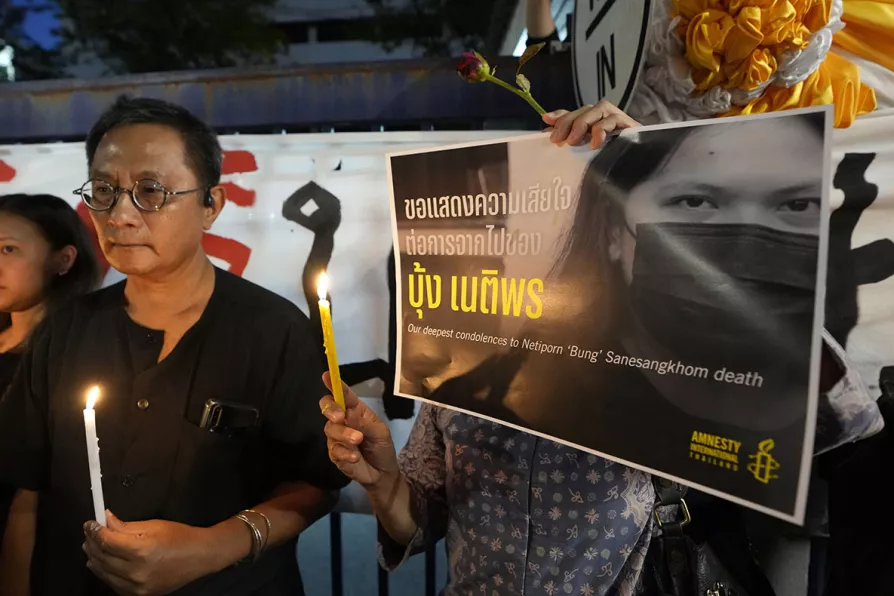
 Thai activists hold a portrait of Netiporn Sanesangkhom, a member of the activist group Thaluwang, known for their bold and aggressive campaigns demanding reform of the monarchy and abolition of the law that makes it illegal to defame members of the royal family outside of Criminal court in Bangkok, Thailand, May 14, 2024
Thai activists hold a portrait of Netiporn Sanesangkhom, a member of the activist group Thaluwang, known for their bold and aggressive campaigns demanding reform of the monarchy and abolition of the law that makes it illegal to defame members of the royal family outside of Criminal court in Bangkok, Thailand, May 14, 2024
A YOUNG activist in Thailand who went on a hunger strike after being jailed for advocating reform of the country’s monarchy died in a prison hospital on Tuesday, officials said.
The death sparked fresh calls to review the judicial process that allows political offenders accused of non-violent offences to be held for extended periods in prison ahead of being tried.
Netiporn “Bung” Sanesangkhom was a member of the activist group Thaluwang, known for their bold and aggressive campaigns demanding reform of the monarchy and abolition of the law that makes it illegal to defame members of the royal family.

As Palestine Action prisoners go weeks without food, alleging dangerous neglect and detention without trial, campaigners warn that a near-total media blackout is hiding a crisis that could turn fatal – and fuel a growing wave of public anger. ELIZABETH SHORT reports












